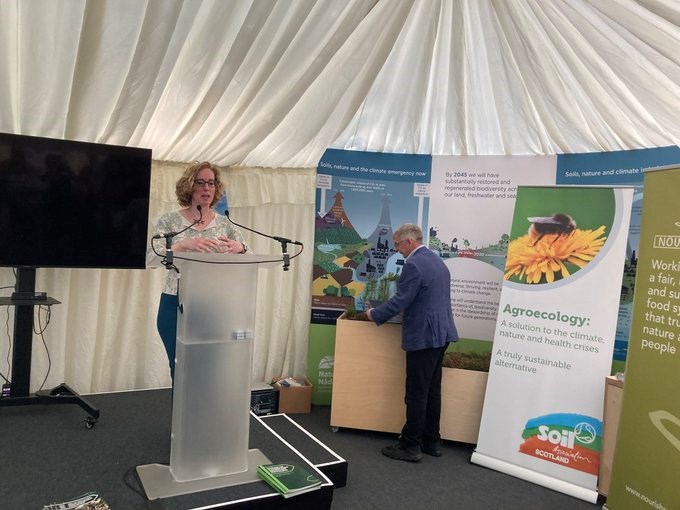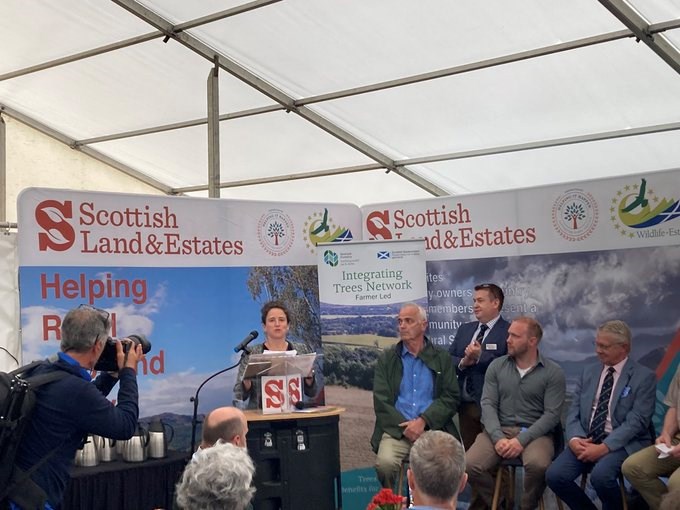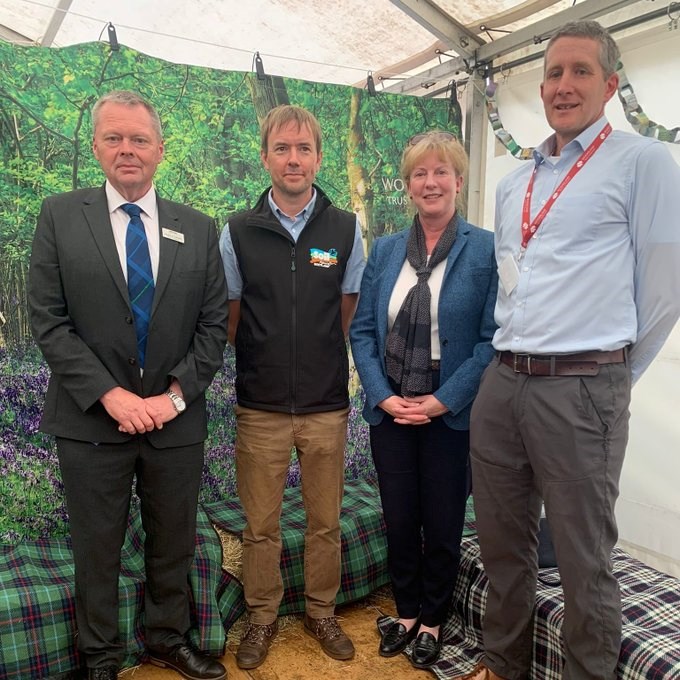Finding common ground – Royal Highland Show 2023
On the morning of the first day of the 2023 Royal Highland Show, BBC Radio’s Good Morning Scotland programme was discussing the future of agricultural support.
The context of the package was that Scotland is at a crossroads, with the imminent introduction of a new system of payment for farmers and crofters to replace the EU Common Agricultural Policy.
The piece featured Soil Association farmer ambassador Nikki Yoxall, who articulated very well the need to place strict conditions for those receiving public money in future, rewarding actions that will help to tackle the twin climate and nature emergencies.
The counter argument was presented by NFU Scotland member and beef farmer Gary Christie, who was wary of any additional environmental conditions being attached to farm payments and voiced fears about the future viability of his business.
This approach of taking two seemingly polarised viewpoints is standard practice for the media.
But does it tell the whole story? And are nature-friendly farmers and so-called ‘conventional’ farmers really that far apart?
A busy political and policy agenda
As usual at the Royal Highland Show, there was no shortage of expert panel discussions and report launches exploring the future of food production and government support.
Scottish and UK Government Ministers – including First Minister Humza Yousaf and Secretary of State for Scotland Allister Jack – were all in attendance at Ingliston, alongside MPs and MSPs of all parties.
And while the media focused on contested issues such as beaver re-introduction and the approval of chemical usage for bracken control, the reality on the ground was much more nuanced.

Biodiversity Minister Lorna Slater put it well during her appearance at the Scottish Organic Stakeholders Group organic lunch event when she said that the idea of farming and the environment being in competition needed to end. Ms Slater was clear that Scotland needed both to flourish, and that the SNP-Green government was committed to ensuring that happened.

And there was widespread agreement at the Scottish Land and Estates breakfast event the next morning with the Scottish Government and Scottish Forestry-led Integrated Trees Network. Farmers and foresters on the panel all shared the view that the careful integration of trees into farming and crofting systems was essential to help deliver on the government’s climate and nature objectives.
Joining forces for nature and climate
Indeed later that day, Soil Association Scotland launched a joint policy position with NFU Scotland and Woodland Trust Scotland on the same subject.
This followed on from a policy report published last year, Integrating Trees on Farms and Crofts, which outlined the benefits, barriers and opportunities of agroforestry systems.
Now with the Scottish Government preparing to introduce an Agriculture Bill to parliament, and the ongoing work to develop the detail of the future payment system, the three organisations are working together to make sure farmers and crofters are supported by government to plant trees and hedges in a way that compliments food production.
The Soil Association Scotland view is that the evidence is increasingly showing that the careful integration of trees into livestock or arable systems can bring productivity benefits, in addition to the widely accepted environmental and societal benefits such as improving biodiversity, capturing carbon, preventing soil erosion and reducing the risk of flooding downstream.

We were very pleased to see Cabinet Secretary for Rural Affairs Mairi Gougeon responding to this by announcing changes to the existing agroforestry options under the Forestry Grant Scheme at the RHS, which included a 50% increase in payment rates and changes to planting thresholds.
In speaking with one voice on this issue, the NFU Scotland, Woodland Trust Scotland and Soil Association Scotland have shown that there is common ground to be found between industry bodies and environmental NGOs. We will need more of this type of collaboration in the coming months and years if we are to encourage the kind of shift in food production and consumption that will be needed to meet our net zero and nature restoration targets.

